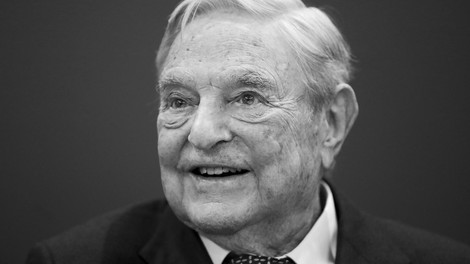Your podcast discovery platform
Curious minds select the most fascinating podcasts from around the world. Discover hand-piqd audio recommendations on your favorite topics.

piqer for: Globalization and politics Global finds
Sezin Öney, originally from Turkey, is based in Budapest and Istanbul. She her journalism career as a foreign news reporter in 1999 and she turned into political analysis as a columnist since 2007. Her interest in her main academic subject area of populism was sparked almost decade ago; and now she focuses specifically on populist leadership, and populism in Turkey and Hungary. She studied international relations, nationalism, international law, Jewish history, comparative politics and discourse analysis across Europe.
How George Soros Upstaged Donald Trump At Davos
They certainly are men with big egos. And then their paths crossed at a small Swiss ski resort called Davos. Two elderly Manhattan billionaires, Donald Trump and George Soros, both attended the annual World Economic Forum taking place in Davos, and only one hit the headlines — the star of Davos turned to be the latter.
Now aged 87, Soros was energetic and fiery in his criticism of the "current moment in history", which he finds "rather painful”. He went to declare that “Open societies are in crisis, and various forms of dictatorships and mafia states, exemplified by Putin’s Russia, are on the rise. In the United States, President Trump would like to establish a mafia state, but he can’t, because the Constitution, other institutions, and a vibrant civil society won’t allow it.”
As Soros was embarking on scathing criticism, the U.S. President himself was proceeding to bilateral meetings with Britain's PM Theresa May and Israel's PM Benjamin Netanyahu. He was making "some Trumpian news" as well, as the article's author John Cassidy puts it, "by needlessly insulting the Palestinian leaders and threatening to withhold U.S. financial aid".
In any case, as aforementioned, when the two giant egos collided, Soros turned out to be the star — this was because he turned to be the one full of surprises. In Cassidy's words:
After acknowledging the dangers of climate change, he turned his attention to “another global problem: the rise and monopolistic behavior of the giant I.T.-platform companies,” such as Facebook and Google. Here was a threat, Soros suggested, that was likely to be more lasting than the Trump Administration. As these huge companies have come to dominate the Internet, “they have caused a variety of problems of which we are only now beginning to become aware,” he explained.
Soros founded his criticism on economical, sociological and even philosophical bases. The "Tech giants vs Open societies" debate trumped Trump by dominating headlines-and social media trending topics.
